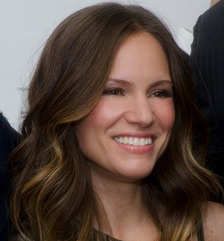A Quote by Glenne Headly
Once we were a part of Equity, we were able to get a salary, and then because we were employing ourselves, we just made sure we were always working. We put in hours to get subscribers. We used to do little shows at rich peoples' houses to get them to give us money.
Related Quotes
The people that did it the way they were supposed to do it, the way they were taught in school: save your money, so that when you retire.They get nothing. They have nothing. They were going to live off the interest of the money. They don't have money. And then on top of it you had the problems of nine years ago [in 2005] with the mortgages so half of them their houses have been taken away.
We thought that the odds of things working OK were up in the upper 90 percent or we wouldn't have gone. But the - there were some problems cropped up on the flight but was able to take care of those OK and - although they were things that we hadn't really trained that much for. But it was the time of the Cold War and so there were was a lot of pressure on the - to get going and the Russians were claiming that they were - Soviets were claiming they were ahead of us in technology.
I think that's always been part of the thinking behind the script, that - and I really tried really hard to impress that upon the staff of the show, the animation staff - to try to get them to understand that we would only be able to get away with what we were writing if the visuals were appealing enough that it was like a balance, and even people who didn't like what they were hearing would still not want to turn away because what they were seeing was so nice. So that was kind of my hunch, and I think it worked.
It had long been true, and prisoners knew this better than anyone, that the poorer you were the more likely you were to end up in jail. This was not just because the poor committed more crimes. In fact, they did. The rich did not have to commit crimes to get what they wanted; the laws were on their side. But when the rich did commit crimes, they often were not prosecuted, and if they were they could get out on bail, hire clever lawyers, get better treatment from judges. Somehow, the jails ended up full of poor black people.
TARP became so politicized that having money from it was almost like a scarlet letter. There were debates over compensation, worry that the rules were going to get changed. All the banks were desperately rushing to get that money back as soon as possible - in part, so they could pay themselves bonuses without any government restrictions.
Of course you want to keep making good records, but I think there were certain aspects to the indie rock situation at that point where we were pushing the envelope a little bit too far. We weren't happy with the distribution we were getting, and a few other things. So for a lot of ways it made sense for us to jump to a major label right then, and it made sense in terms of challenging ourselves to put ourselves in new situations.
I was the fifth child in a family of six, five boys and one girl. Bless that poor girl. We were very poor; it was the 30s. We survived off of the food and the little work that my father could get working on the roads or whatever the WPA provided. We were always in line to get food. The survival of our family really depended on the survival of the other black families in that community. We had that village aspect about us, that African sense about us. We always shared what we had with each other. We were able to make it because there was really a total family, a village.
The first comedians I became fascinated with were the Marx brothers. I couldn't get enough of them. Later in life, I thought, "Well, maybe it's because they were so rebellious and they were just flipping the bird to society and all the rules we're supposed to follow." They were saying that none of it is fair.
What I saw over all that time were so many deals disappearing and producers disappearing, fewer movies getting made, and it just being a bit more difficult. Working with Joel, we were in a bit of a bubble because he was always making things that were working for the studio and that kind of thing. We were always in production on something.
I've always thought that people who left a great deal of money in their will never enjoyed the great honor and privilege and heart-rendering feeling of giving to others during their lifetime, because they were too selfish to give to others while they were alive, so they made sure they were dead and couldn't use it anymore.
We were together because we were addicted to each other. I was never as intoxicated as I was when we were happy together, and I knew it was the same for him. We were putting ourselves through the wringer for those moments of perfection between us, but they were so tenuous that only our stubbornness, determination and love kept us fighting for them.




































